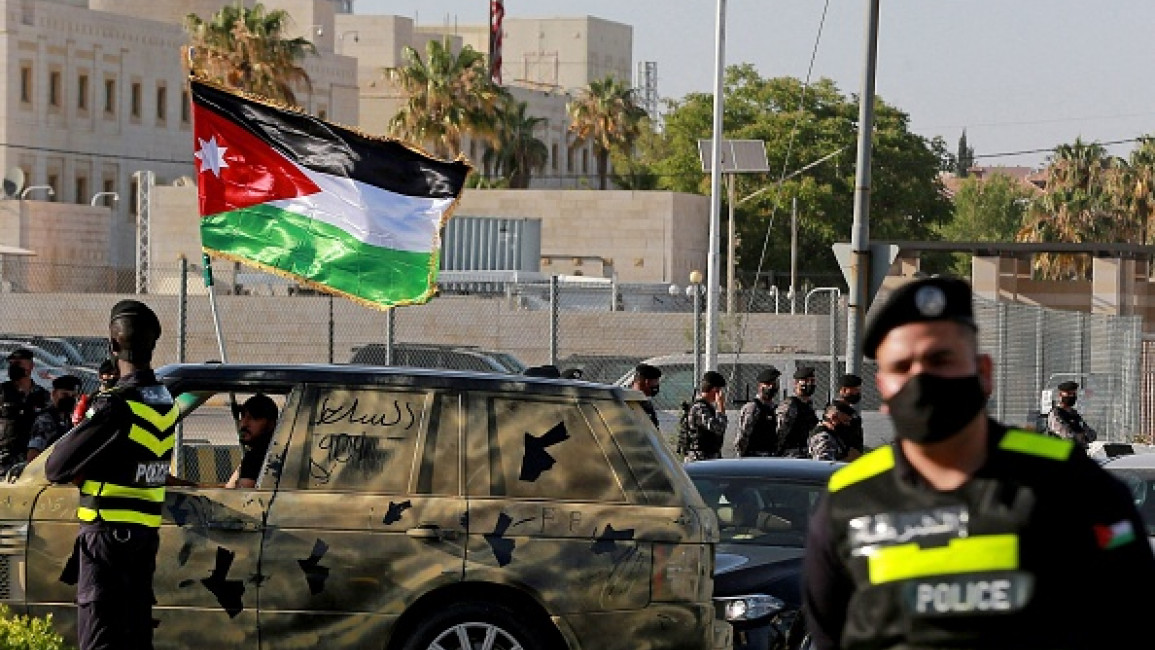29 Jordanian political activists arrested on Arab Spring anniversary
At least 29 political activists were arrested in Jordan on Thursday as authorities sought to prevent demonstrations on the 24 March anniversary of Jordan's 2011 Arab Spring protests.
Many of the political activists are affiliated with the Hirak movement, the main opposition party that spearheaded calls for change and democratic reform alongside thousands of protesters in 2011. At the time, the protests prompted King Abdullah to strengthen the role of parliament and push through political and economic reforms.
The detainees were arrested at their homes en-masse on Monday, Hala al-Ahed, a lawyer working with the National Forum for Defending Freedom, told The New Arab. The charges against the 28 individuals are still unknown.
Jordan's public security directorate did not respond to a request for comment by the time of publishing.
Some activists said that they saw unmarked cars belonging to Jordan's security forces staked outside their homes on Sunday night and Monday. Another lawyer with the National Forum, Jamal Jaith, said that he and his family were sleeping outside their homes after seeing unmarked cars surveilling his home.
"I do not want my house to be raided for my arrest and I don't want to expose my family members to this sad situation. If I am wanted for arrest, I am ready to turn myself in now … These actions will not intimidate me," Jaith said in a Facebook post.
Arrests of political activists and journalists have been increasingly common in Jordan over the last year.
On March 23, there were riots in several Jordanian cities following the announcement of the results of local elections. At least 46 people were arrested in connection with the riots.
Last month, at least seven political opposition figures had their homes raided and were detained. They were eventually released after the detainees initiated a hunger strike.
Two prominent journalists, Taghreed Risheq and The New Arab contributor Daoud Kuttab were arrested and charged under the cybercrime law on 9 March.
Protests in Jordan typically centre on economic complaints. Jordan's economy has worsened since the COVID-19 pandemic, with an official unemployment rate of 25 per cent and basic goods becoming more expensive.
Perceptions of corruption within the government are widely-held, with much of the population believing corruption is a key driver of the country's economic crisis.
The most notable incident of popular unrest in recent years was demonstrations in favour of the country's teachers, whose union was shut down after demanding a pay increase in July 2020.
Analysts and rights groups have said that the space for dissent in Jordan has been consistently shrinking. In 2021, Freedom House downgraded Jordan from "Partly Free" to "Not Free," primarily due to its suppression of the teachers' syndicate protests.



